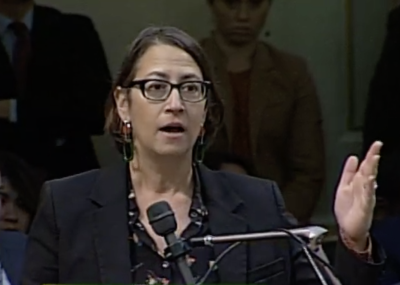The California Legislature is considering a bill to add more rodenticides to an existing ban list and create buffer zones near wildlife areas. Agricultural groups worry it would leave processing facilities with no adequate products to protect the state’s food supply against rats and disease.
The state exempted the industry when it passed a ban on second-generation anticoagulant rodenticides in 2020. But Assemblymember Laura Friedman of Glendale asserts that the legislation has failed to prevent wildlife deaths and that widespread exposure remains prevalent. She wielded that argument last year for a bill that banned use of the first-generation anticoagulant diphacinone, with Gov. Gavin Newsom signing both measures into law.
This year Friedman has filed Assembly Bill 2552 to eliminate the use of two more first-generation anticoagulants, chlorophacinone and warfarin. The bill would also expand the definition of wildlife habitat area to include open space and would prohibit the use of anticoagulant rodenticides within 2,500 feet of those areas, while tasking the Department of Pesticide Regulation (DPR) with enacting stronger restrictions on the use of first-generation anticoagulants.
 Asm. Laura Friedman, D-Glendale
Asm. Laura Friedman, D-GlendaleWith budgetary constraints facing the state and agricultural commissioners, the bill proposes the unprecedented step of allowing community members to bring legal action against the use or sale of banned products—a form of citizen lawsuits modeled after California’s controversial Private Attorneys General Act.
At the first hearing on the measure last week, Friedman charged that rodenticides pose a public health threat. She cited statistics from the American Association of Poison Control Centers that rodenticides led to more than 3,000 human poisonings in 2021, with most victims being children under six years old.
“As our state pivots to more sustainable and less inherently flawed products, more humane and strategic pest control can work in concert with our wildlife predators, not against them,” Lisa Owens Viani, director and co-founder of the advocacy group Raptors Are the Solution, or RATS, told the committee.
Owens Viani claimed that alternatives, such as fertility control products, can work just as well as rodenticides.
Friedman assured lawmakers that “the vast majority of agriculture” remains exempt from the bill. But that did not alleviate concerns from farm interests. Taylor Roschen, a lobbyist for the firm Kahn, Soares & Conway representing a coalition of agricultural associations, blasted the measure for usurping the current process for governing pesticides. She noted that AB 2552 would allow DPR to overturn the bans through its scientific review process, but only if it meets “near impossible” standards in the bill.
It’s easy to be “in the know” about what’s happening in Washington, D.C. Sign up for a FREE month of Agri-Pulse news! Simply click here.
“The science should dictate the decision making in that process,” argued Roschen.
She pointed out that Friedman and the environmental groups backing her bill can currently submit to DPR at any time information on the impacts to species, and DPR would be legally bound to impose new mitigation standards or ban the products altogether, if needed.
“In the next few weeks, we'll be hearing a conversation about fully resourcing DPR to do things just like this,” said Roschen, referring to a budget proposal to overhaul the mill assessment on pesticide sales to finance DPR programs.
Roschen warned the definition of open space in the bill would incorporate high-fire severity zones and earthquake fault lines, meaning it would effectively ban rodenticides from use in entire counties. She believed the bill would erode agricultural exemptions that were carefully negotiated in previous bans, since many operations are adjacent to open space. The advent of Newsom’s 30x30 biodiversity initiative and the fallowing of thousands of acres of farmland due to the Sustainable Groundwater Management Act will create even more open spaces alongside farms. She also dismissed the proposed rodenticide alternatives as unrealistic solutions.
Piling onto the arguments, Blair Smith, director of technical and quality assurance for Clark Pest Control, said the pesticides targeted in the ban have widely known antidotes, while the alternative materials do not. Smith also worried that AB 2552 would force small pest control businesses to close under the financial pressure of frivolous lawsuits, regardless of whether they were innocent.
The arguments, however, carried little sway with the committee, which approved the bill along party lines.
For more news, go to www.Agri-Pulse.com.


